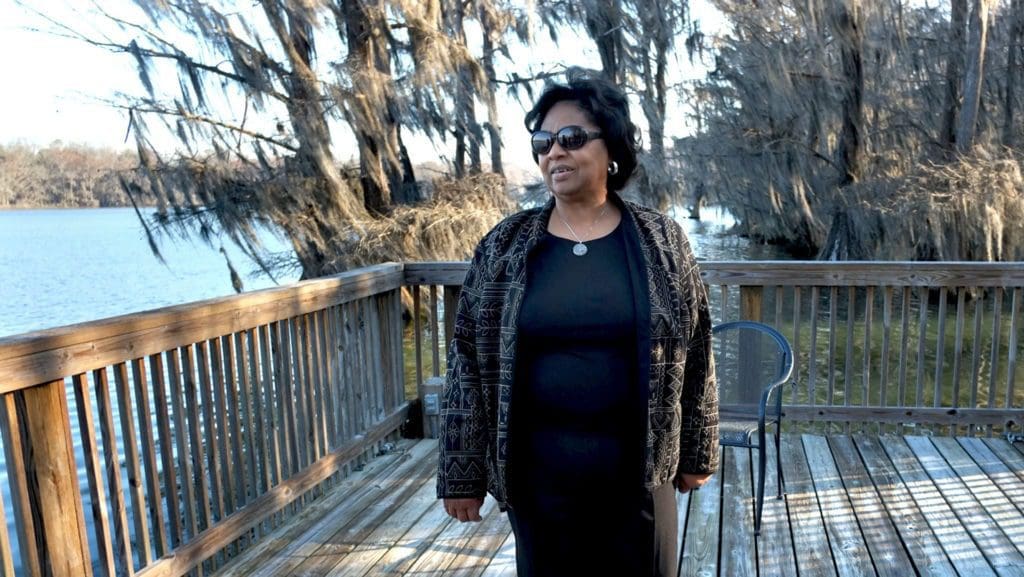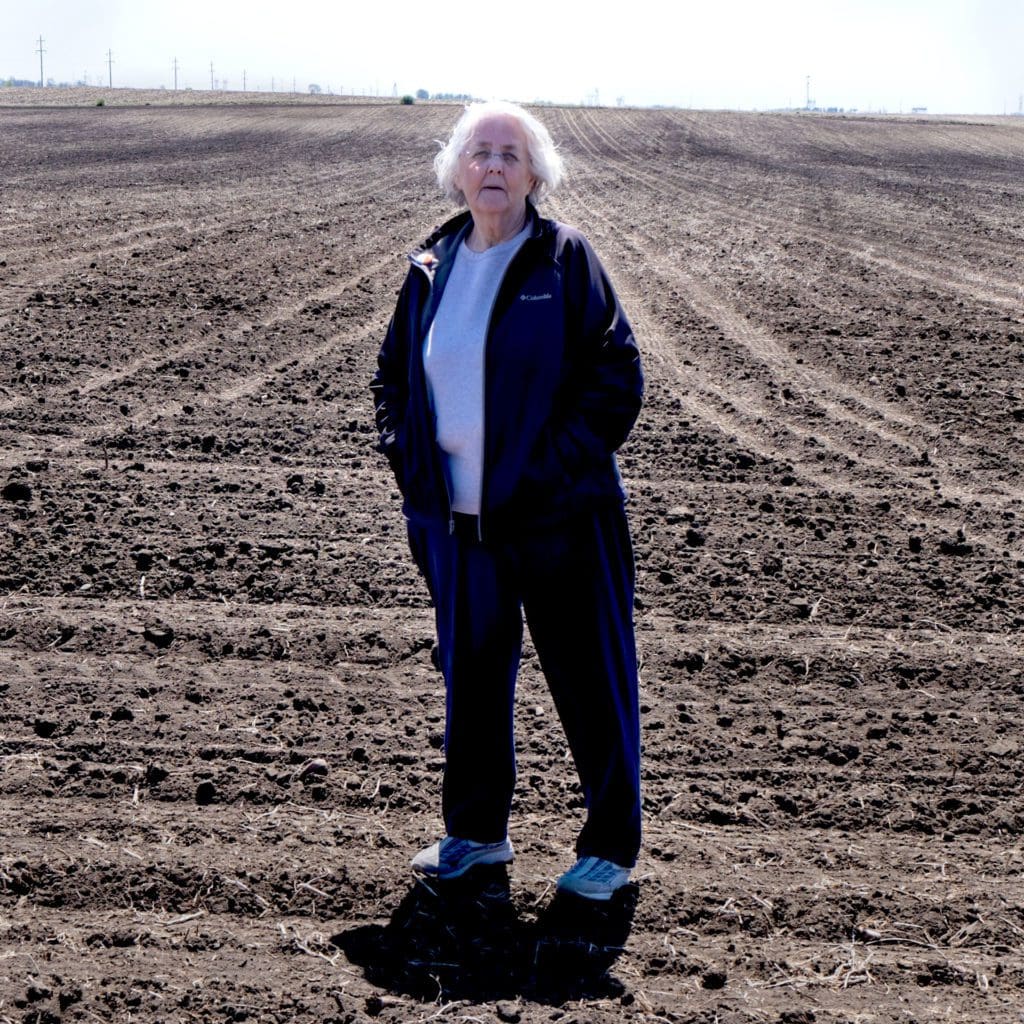New Film, ”Homeplace Under Fire,” Profiles Unlikely Heroes of the 1980s Farm Crisis
“There’s a home place under fire tonight in the heartland / And the bankers are taking my home and my land from me,” sings Willie Nelson at the close of the new short documentary film, Homeplace Under Fire, which premieres this evening at Duke University. Nelson wrote the song following the worst of the 1980s farm crisis, giving voice to the tragedy too many farmers experienced as banks and government lenders aggressively, and sometimes illegally, foreclosed on their farms. Well over a quarter of a million farms were lost in the 1980s, and with them went businesses and eventually whole communities, ultimately hollowing out rural America in ways that reverberate decades later. Homeplace Under Fire, directed by Charles D. Thompson, Jr., and produced by Farm Aid, tells the story of the farmer advocates who learned the law and fought the foreclosures, helping an untold number of farmers stay on their land.
What Was the Farm Crisis?
The farm crisis was caused by a perfect storm of politics and economics, including a shift in farm policy, a Russian grain embargo, a burst land price bubble and skyrocketing inflation and interest rates. In most rural communities, it seemed to come from nowhere: one minute, land prices were sky high and bankers were pushing farmers to take on ever-larger loans, and the next, those loans were being called in, backed up by foreclosure notices when farmers could not pay. It was not unlike the 2008 mortgage crisis, says Farm Aid Executive Director Carolyn Mugar. Farmers “were given opportunities to borrow that were not in line with reality,” she says in the film. When the reality caught up, the consequences were severe. “When a farmer loses the farm,” says Mugar, “it’s not just the farm; they lose their home, and in many cases, hundreds of years of someone living and farming that land.” Those losses took a serious toll: in the 1980s, more than 900 farmers committed suicide in the upper Midwest alone.
Well over a quarter of a million farms were lost in the 1980s, and with them went businesses and eventually whole communities, ultimately hollowing out rural America in ways that reverberate decades later.
Farm communities were under dire threat, and out of the chaos emerged unlikely heroes. Louisiana farmer Betty Puckett says, “My way of life was being taken away from me. …When I found out there were ways to challenge it, I did.” Puckett was one of the many farmers, farm wives and rural citizens who became farm advocates — ordinary people who saw the stress on their own farms and the changes in their neighbors, and decided to do something. Some heroes run into burning buildings; the farm advocates taught themselves agricultural credit law. The knowledge gave them power, and the willingness — rare among farmers, especially in the Midwest — to stand up, make waves and face tough conversations head on. In learning the law, the advocates found irregularities and illegalities in case after case, as it became clear that the Farmers Home Administration, the government’s “lender of last resort” for farmers, instead had become an active agent in pushing farmers out of the business.
The situation was worst in the South, where discrimination against Black farmers by local US Department of Agriculture (USDA) offices was rampant; Black land loss during the farm crisis was five times the average. Black farmers were finally awarded $2 billion in a class action lawsuit against USDA in 1999, and the Obama Administration took steps to address the long legacy of discrimination at the agency. Long before that, advocates like Shirley Sherrod, who was galvanized into the civil rights movement in Georgia after an all-white jury failed to indict the white man who murdered her father, says, “I made sure I knew all the regulations, so I would know them better than the person sitting in that office.” She has used her knowledge to keep farmers on their land across the South for thirty years.

Willie Nelson and the Origins of Farm Aid
Willie Nelson, of course, is also a key figure in this story. At the height of the farm crisis in 1985, he organized the first Farm Aid concert in Champaign, Illinois, bringing together fifty acts and an audience of 80,000 people in under six weeks. That first concert raised $7 million; Farm Aid celebrated its thirtieth anniversary last year and has raised $50 million to support independent family farms across the US. Executive Director Mugar says in the film that while the fundraising was important — critically so, as many early small grants allowed farmers to buy groceries or pay their electricity bill — the awareness that the so-called “concert for America” raised was just as important, because for the first time, farmers felt that their struggles were seen. Ralph Paige, longtime director of the Federation of Southern Cooperatives and a Farm Aid partner, says, “we were in a vacuum,” working to save Black-owned farms in the South. When Farm Aid came on the scene, “it connected us for the first time with other farm organizations.”
Farm Aid and the farm advocate network were important elements of a broad, multiracial, farmer-led movement in response to the crisis. Others in the movement organized protests, penny auctions and occupations of USDA offices; proposed and passed alternative federal farm policy; campaigned with Jesse Jackson; and directly countered anti-Semitic and white nationalist groups who were using farmers’ devastation to build their own ranks. The farm advocates, in addressing farmers’ immediate needs and saving their farms — and in many cases, their lives — brought people into the movement and moved them to action; many farmers who were helped became advocates themselves.
A New Farm Crisis on the Horizon?
Though Homeplace Under Fire is rooted in the 1980s, it could not be more timely. Farm Aid and its partners have begun to warn of another impending farm crisis — perhaps the biggest wave of farm foreclosures since the 1980s. Net farm income fell 45 percent from 2013 to 2016, and the USDA forecasts it to decrease nearly another nine percent in 2017. While costs of production are expected to go down as well, they will not be to levels low enough to offset the income crash. Further worrying rural advocates, new Secretary of Agriculture Sonny Perdue announced last week that he will eliminate the Undersecretary of Rural Development, raising concerns about ongoing federal investment and economic assistance to struggling rural areas.
Meanwhile, Farm Aid has seen a 27 percent increase in calls and emails to its helpline in the last year, including a nearly 40 percent increase in farmers reporting potential or actual bankruptcy and more than a 50 percent increase in reports of problems with the Farm Service Agency, today’s government lending agency. Just today, National Farmers Union launched an online Farm Crisis Center to provide resources to struggling farmers. As homes and farms are increasingly under fire again in the heartland, Homeplace Under Fire makes it clear that not only do we need a new generation of farmers, we must train and support a new generation of farm advocates to ensure that they will be able to stay on the land.

Tonight’s premiere is hosted by Farm Aid cofounder John Mellencamp, and dedicated to farm advocate Lou Anne Kling, a Minnesota farmer and advocate featured in the film who passed away on May 17. In 1984, Kling cofounded the Minnesota Farm Advocates program, which hired 35 farmers to work as advocates under the auspices of the state Department of Agriculture, and she served in the 1990s as USDA Deputy Administrator of Farm Loan Programs. Following the premiere, Homeplace Under Fire will be shown in rural communities where longtime farm advocates live and work. In the late fall, it will be available for screenings universities and conferences. To bring the film to your community, email [email protected].
More Reading
A new report envisions federal food spending as a force for good
January 3, 2024
It’s Been a Big Year for the Labor Movement. What About Farmworkers?
August 31, 2023
Escalating U.S.-Mexico Debate over Corn Forces Questions about GMOs, Food Sovereignty
June 5, 2023
Farmers and Advocates See Opportunity for Climate Action and Racial Equity in the Upcoming Farm Bill
April 10, 2023
How Hormel Exploited Confusion Over the Natural Label
January 23, 2023
Waivers for Universal School Meals Expired. What Does that Mean for Childhood Nutrition?
November 28, 2022
Can Legislation in the 2023 Farm Bill Help Tackle Food Waste??
June 15, 2022
Where Food Sustainability and Disability Clash
June 14, 2022
The Trouble With Farmland “Investment”
January 11, 2022
A Boost to Nutrition Assistance During Pandemic Is A Boost To Farmers’ Markets
November 29, 2021
